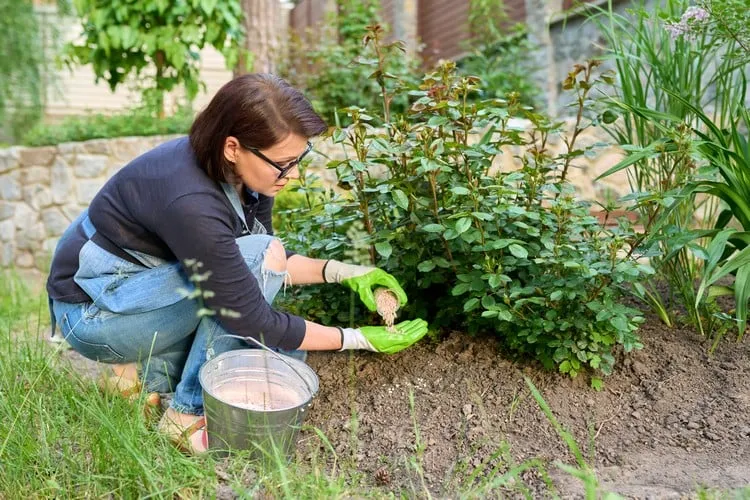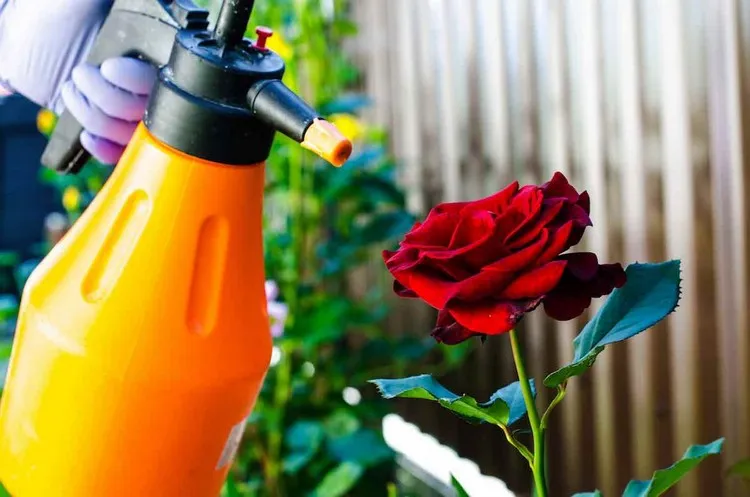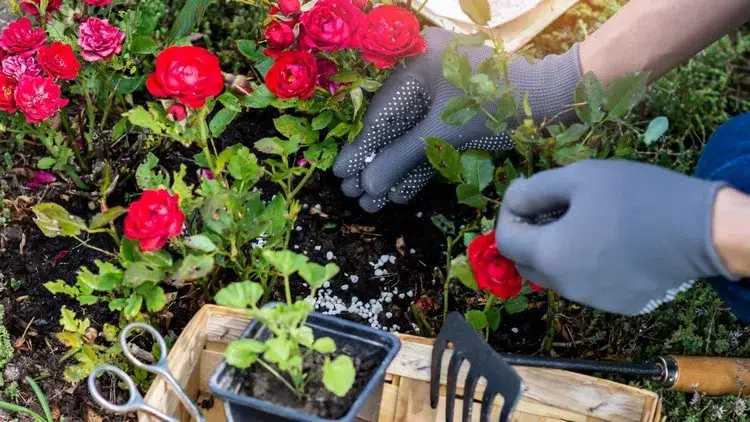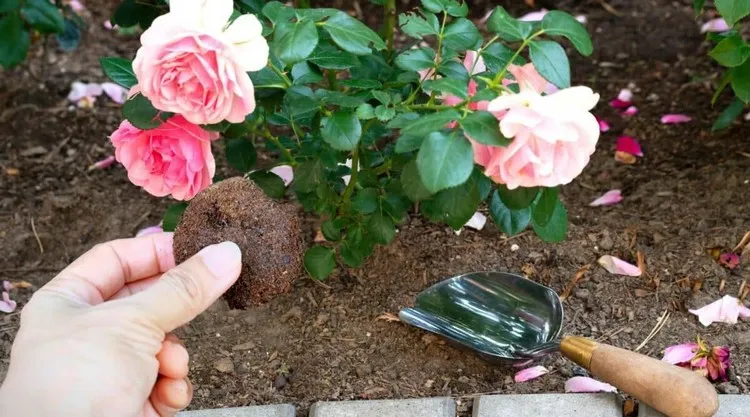What can you do to prolong the bloom of your roses in fall? Fertilize them, of course! In addition, this will also encourage their growth and make them stronger and more resistant to diseases. A few questions remain, however. What fertilizer for rose bushes in fall should you use and how exactly to apply it? When is the best time to feed the shrub? Find out all you need to know!

When to Fertilize a Rose Bush?
Choosing the right period to fertilize rose bushes, but also each plant in general, is essential to their good health. As for rose bushes, fertilization begins from the moment of planting. Here, two options are available to you: either slow-release granules, or additions of manure or compost. These will also aerate the soil and improve its texture. Next, it’s all about maintenance fertilization. It is carried out during the growing season, i.e. from March until the beginning of fall.
- Caution: Do not add fertilizer to rose bushes in winter. The plant is at rest and fertilization is unnecessary.
Liquid fertilizers should be applied every 15 days. The minerals present there are immediately available to the plant, because the product is intended for rapid action. Granulated fertilizers, on the other hand, are slow-release and are applied every three months. This means you can feed your rose bushes three times during their growing season: early spring, summer and early fall.

What Fertilizer for Rose Bushes in Fall Should You Choose?
When it comes to fertilizer for rose bushes in fall, products can be divided into two categories: those you buy in garden center and those of natural or organic origin. As a general rule, rose bushes, but also all other flowering shrubs, need a fertilizer rich in potassium, as this encourages generous blooming. Find out more below!

Commercial Fertilizers
As mentioned above, commercial fertilizers are available in liquid and granulated form. Here is an overview of the two options so you can make the best choice:
- Liquid Fertilizer: It’s super easy to use and all you need to do is dilute it in the water. Follow the dosage instructions on the packaging. However, be sure to moisten the soil beforehand, because if the soil dries, the plant will absorb too much fertilizer, which will burn the roots. Apply every 15 days.
- Granulated fertilizer: Start by raking the soil around the shrub before adding the granules. Cover with 1 inch/2-3 cm of soil and water. Irrigation must be regular since the nutrients are released gradually, particularly through watering. Use every three months.
Caution: Always use the dosage indicated on the fertilizer packaging. Avoid fertilizing near water.

Natural Fertilizers for Rose Bushes
Many gardeners opt for natural rose fertilizer. White vinegar, banana peels, coffee grounds… these are ingredients you already have at home. In addition, you will limit waste while feeding your rose bushes naturally in fall.
- White vinegar: Dilute one tablespoon of white vinegar in 1 gallon/ 4 liters of water. Use for watering once every 3 to 4 months. The vinegar will boost rose bushes, repel pests and kill weeds.
- Banana peels: Roses are among the plants that love banana peels, given the high potassium content which the shrub is fond of. Cut the peels into small pieces and place them at the base of the rose bushes before covering them with a little potting soil. As they decompose, the banana peels will release not only potassium, but also calcium and magnesium.
- Coffee grounds: Many garden novices wonder whether coffee grounds are good for roses. The answer is yes! The brown powder is known to trigger the development of these plants while repelling cats naturally. Mix 3 to 4 teaspoons of coffee grounds with the rose bush compost. Use moderately.
Also read: Organic Fertilizers to Feed Your Plants in the Garden!
